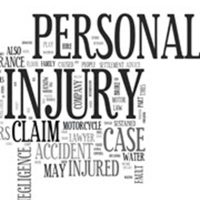When Insurers Act In Bad Faith: Protecting Your Rights To Compensation For Personal Injuries In Seminole

Personal injuries in Pinellas County happen due to the negligence of others involved. In many cases, they may have insurance policies in place to help cover your expenses. Unfortunately, dealing with insurance companies is never easy, as their top priority is maintaining profits. Our Seminole personal injury attorney highlights common bad-faith insurance practices and how to protect your rights to compensation.
Bad Faith Practices On The Part of Insurance Companies
According to the Insurance Information Institute (III), insurers take in more than $14 trillion dollars in premiums each year. Out of this, they typically post billions of dollars in profits annually. In addition to increasing policy costs on a regular basis, one of the ways they protect their profits is by avoiding payouts.
Unfortunately, this can lead to bad-faith practices, which are both unethical and illegal under state and federal laws. Florida defines bad faith as failing to settle claims in a way that is fair, honest, and reasonable. Examples of bad faith insurance practices in Seminole include:
- Failing to honor the terms of policies;
- Canceling insurance with no notice and without any reason;
- Taking too long to investigate and settle claims;
- Failing to notify claimants of deadlines and other important information;
- Failure to provide valid reasons for denied claims.
Getting The Compensation You Need To Recover From Personal Injuries In Pinellas County
Under Section 624.155 of the Florida Statutes, insurance companies can be held accountable for bad faith practices in a civil lawsuit. Unfortunately, this does not prevent them from engaging in it anyway. They typically have teams of attorneys on retainer and know the worst possible outcome is simply that they will be forced to pay what they originally owed.
To protect yourself and your rights to compensation when dealing with these companies, it is important to take certain steps:
- Make sure an accident report is filed: Notify the police whenever personal injuries happen and make sure an accident report is filed.
- Document your case: Gather evidence, such as contact information for witnesses and photos of the scene. Get medical attention immediately as well and keep copies of all records and statements you receive.
- Use caution when making statements: Insurers will attempt to get you talking and then use statements you make against you.
- Avoid accepting initial settlement offers: Insurers know victims are vulnerable and are likely to offer less than the total amount you deserve.
Be aware that an insurance settlement is not the only option for seeking compensation. You may also be entitled to file a personal injury lawsuit against the at-fault party involved.
Get Our Seminole Personal Injury Attorney On Your Side
To protect your rights in dealing with insurance companies, get The Reep Law Firm on your side. Discuss your case with our Pinellas County personal injury attorney first, before making any statements or accepting any settlements. We help you get the total amount you are entitled to. Contact us today to request a consultation.
Sources:
iii.org/publications/a-firm-foundation-how-insurance-supports-the-economy/introduction/insurance-industry-at-a-glance
leg.state.fl.us/statutes/index.cfm?App_mode=Display_Statute&URL=0600-0699/0624/Sections/0624.155.html
